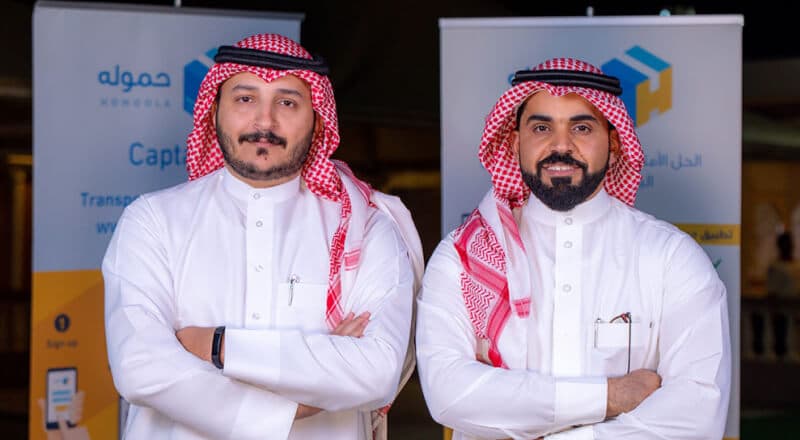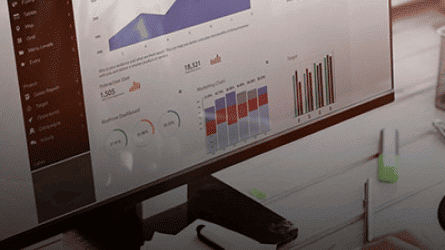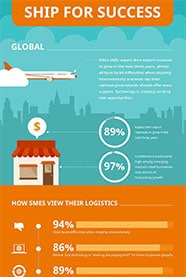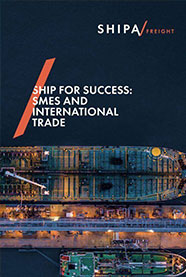Agility committed to supporting start-ups that pioneer the sustainable supply chains of the future
BAAR, Switzerland – 27 Aug, 2019 – Agility, a leading global logistics provider, announced that it has invested $18 million in green supply chain technologies so far through its corporate venture arm Agility Ventures.
The announcement came today as part of Agility’s launch of its latest sustainability report, “Values into Action.” It follows the news that Agility committed to adopt science-based targets for greenhouse gas emissions reduction and achieved third-party certification for its shipment emissions reporting.
Agility is pursuing an ambitious environmental strategy. By 2025, it plans to cut its emissions by 25% from 2016 levels. To reach that goal, the company is implementing renewable energy pilots in large facilities across the world and building to green standards as it adds over 300,000m2 of facilities to its portfolio of warehousing and light industrial facilities across the Middle East and Africa. Agility incorporates sustainability into business discussions with customers and offers emissions reports using a methodology certified to ISO 14064 standards. To drive green transformation across the industry, Agility Ventures has made green technologies one of its four core investment areas.
Agility Chairwoman Henadi Al-Saleh said: “Green technology is a major focus of our investment strategy, and we’re always on the lookout for dynamic new businesses that can revolutionize the supply chain to help protect the planet. We are looking at innovative solutions that drive business value by reducing costs, increasing efficiency, and reducing energy consumption at the same time.”
Green technology start-ups benefitting from the $18 million investment include Hyliion and TVP Solar. Hyliion is a hybrid technology for the trucking industry that reduces fuel consumption and corresponding emissions by up to 30 percent. It achieves this by recycling kinetic energy from braking that would otherwise be wasted. TVP Solar is a break-through, high-vacuum solar thermal technology serving the most energy-demanding applications, such as air conditioning, desalination, and process heat. Already deployed in the Middle East – including in Agility’s corporate headquarters – TVP solutions operate autonomously with no need for cleaning, directly replacing fossil fuels with cheaper, cleaner, solar heat.
Agility CEO Tarek Sultan said the company has strived to set high standards for corporate citizenship over the past decade, particularly in the areas of environmental responsibility, humanitarian relief logistics, and fair labor practices.
“We’ve invested heavily in our human rights approach over the years and tried to lead by example, especially in emerging markets. Our community outreach program has helped more than 1.6 million people in need and we’ve supported the education of over 36,000 students around the world in the last three years. In partnership with the humanitarian community, Agility has donated logistics expertise and services to more than 45 major humanitarian operations in countries ranging from Indonesia to Peru. Agility’s investments in the environment are the company’s new frontier.”
What Shippers Need to Know by Cas Pouderoyen, Senior Vice President, Global Ocean Freight
| Q2 2019 (Million KD) |
Q2 2018 (Million KD) |
Variance (%) |
H1 2019 (Million KD) |
H1 2018 (Million KD) |
Variance (%) |
|
| Revenue | 396.3 | 384.2 | 3.2% | 775.0 | 756.0 | 2.5% |
| Net Revenue | 129.1 | 124.3 | 3.9% | 253.0 | 248.9 | 1.6% |
| EBITDA | 48.6 | 37.1 | 31.2% | 95.0 | 74.8 | 27.0% |
| Net Profit | 21.6 | 20.0 | 8.1% | 41.9 | 38.9 | 7.7% |
| EPS (fils) | 12.99 | 12.02 | 8.1% | 25.18 | 23.38 | 7.7% |
Numbers above are rounded
The effect of the implementation of IFRS 16-Leases on the Income Statement and the Balance Sheet are disclosed in the Consolidated Interim Financial Statements.
KUWAIT – August 13, 2019 – Agility, a leading global logistics provider, today reported second-quarter earnings of 12.99 fils per share on net profit of KD 21.6 million, an increase of 8.1% over the same period in 2018. Q2 EBITDA grew 31.2% to KD 48.6 million, and revenue increased 3.2% to KD 396.3 million.
First-half earnings of 25.18 fils per share and net profit of KD 41.9 million were up 7.7%. First-half EBITDA was KD 95 million, an increase of 27%. Revenue for the first half was KD 775 million, an increase of 2.5%.
Tarek Sultan, Agility Vice Chairman and CEO, said: “We had a good Q2 despite the tough environment we operate in. GIL reported very good results and continues to implement its strategy to drive operational efficiency. Agility’s Infrastructure companies performed well, and key initiatives in each business unit are moving ahead according to plan.”
Agility Global Integrated Logistics (GIL)
Global Integrated Logistics achieved EBITDA growth of 7% (excluding IFRS 16 impact) despite higher operating expenses related to new facilities and higher staff costs for operations and commercial requirements. GIL’s Q2 reported EBITDA was KD 15.9 million, or KD 10 million excluding IFRS 16 vs. KD 9.3 million in Q2 2018.
GIL Q2 gross revenue fell 2.6% to KD 281.9 million, mainly due to currency fluctuations. On a constant-currency basis, GIL revenue grew 1%. Net revenue increased 4% to KD 69.4 million, mainly as a result of better Ocean Freight and Contract Logistics performance.
The global Air Freight market continued to be under pressure. GIL Air Freight net revenue decreased 1.8% as the result of lower job volume and tonnage, although the decrease was offset in part by higher yields. Q2 2019 tonnage fell 8% vs. Q2 2018. The decrease was the result of weak market conditions and lower demand across industries and geographies, along with a return to more normal volumes following a spike in high-volume shipments a year earlier. The Air Freight market was affected by volume declines and shifts that have resulted from US-China tariffs and import restrictions.
Strong Ocean Freight performance was driven primarily by yield improvement, despite a 2% drop in TEUs. Ocean Freight performance was strongest in the Americas and Asia Pacific.
Contract Logistics growth continued in Q2 with gross revenue of KD 32.8 million, a 1% increase from the same period in 2018. The Middle East-Africa region, notably the Kuwait and Egypt markets, was the key driver of growth and improved margins.
Net revenue margins for GIL improved to 24.6% in Q2, up from 23% a year earlier.
During the first half of 2019, GIL EBITDA improved 69.5% on a reported basis, taking into account the impact of IFRS 16 (it remained at the same level after excluding the IFRS 16 impact). Revenue decreased 1.9% on a reported basis (or increased 2.1% on a constant-currency basis). GIL net revenue improved 3.1% in the first half.
GIL is focusing on accelerating the roll-out of its global operating platform, as part of a broader digital transformation strategy that is intended to drive improved customer experience, more effective supplier management, enhanced business efficiency and productivity, and better data for decision-making.
Agility’s Infrastructure Companies
Agility’s Infrastructure group EBITDA rose 18.2% to KD 32.8 million in the second quarter. Revenue grew 21.2% to KD 118.2 million. First-half EBITDA grew 14.7%, and revenue increased 15%. All entities in the group contributed to this performance.
Agility Logistics Parks (ALP) reported 15% revenue growth for the quarter. Revenue from facilities completed in late 2018 contributed to this growth, as did yield improvement at existing facilities. In Kuwait, ALP is looking to develop new facilities that optimize the use of its existing land bank. In Saudi Arabia, ALP has completed the development of two of the three warehouses it is building in 2019, each with 40k SQM capacity. ALP Saudi Arabia is now moving ahead with the development of the third warehouse. In Africa, ALP projects are progressing well. New warehousing space at the ALP in Ghana will be delivered soon. More space in other locations will be added towards the end of 2019.
Tristar, a fully integrated liquid logistics company, posted 23.2% revenue growth in the second quarter, driven by increases in road transport and warehousing operations from new contract wins from new and existing customers, in addition to the shipping business. Tristar continues to execute and to look for opportunities to unlock additional value for its shareholders.
National Aviation Services (NAS) grew revenue 1.6% in the second quarter. NAS’s performance this quarter was affected by airspace closures and a decrease in commercial flights in some countries where it operates. However, NAS anticipates a rebound towards the end of the year.
At United Projects for Aviation Services Company (UPAC), a leading real estate and facilities management company operating in Kuwait, revenue fell 2.3% in the second quarter. The decline was largely the result of a shift in passenger traffic to dedicated airline terminals, along with a reduction in the number of flights operating out of Sheikh Saad Terminal.
Earlier this year, UPAC began car park management operations in (T4), the newly dedicated Kuwait Airways terminal. In Abu Dhabi, construction continues to progress on Reem Mall, the $1.2 billion project set to become the new retail and leisure attraction in the Emirate. Reem Mall is scheduled to open in late 2020. UPAC continues to optimize its existing real estate management platform in Kuwait and work to expand its presence there and elsewhere in the region.
GCS, Agility’s customs modernization company, posted revenue growth of 12%, driven by increased trade activity in Kuwait, in addition to new service offerings. GCS continues implementing initiatives to drive efficiency and improve profitability.
Recap of Agility second quarter 2019 Financial Performance
- Agility’s net profit increased 8.1% to KD 21.6 million in the 2nd quarter of 2019. EPS was 12.99 fils vs. 12.02 fils a year earlier.
- Agility’s 2nd quarter EBITDA increased 31.2% to KD 48.6 million.
- Agility’s 2nd quarter revenue rose 3.2%, to KD 396.3 million and net revenue increased 3.9%.
- GIL 2nd quarter revenue declined 2.6% to KD 281.9 million, or increased 1% on a constant currency.
- Infrastructure’s 2nd quarter revenue grew 21.2% to KD 118.2 million.
- Agility enjoys a healthy balance sheet with KD 2 billion in assets. Net debt excluding IFRS 16 impact was KD 203.5 million as of June 30, 2019. Reported operating cash flow was KD 41 million for the first half of 2019, an increase of 40.3%.
Pennsylvania Court Affirms 2018 Ruling for Agility
KUWAIT – August 6, 2019 – A state court in the United States last week upheld a lower court ruling in favor of Agility in a case that arose after a whistleblower letter informed the U.S. government of business relationships that existed between KGL and state-owned Iranian entities.
The Pennsylvania Superior Court denied KGL’s appeal of a lower court’s summary judgment in favor of Agility in a defamation lawsuit that was brought by KGL in 2012. Both companies are logistics services providers holding U.S. government contracts.
In affirming the dismissal, the Superior Court recognized the trial court’s conclusion that “there was no genuine issue of material fact that the factual assertions…relating to KGL’s ties with Iranian entities were substantially true.”
The decision by the Pennsylvania Superior Court is victory for whistleblower rights and for transparency in government contracting.
The Superior Court affirmed the lower court’s findings that letters sent by Agility to various U.S. government agencies and offices dealt with matters of public concern and contained protected political speech, as well as information about KGL’s relationship with Iranian entities that was generally not in dispute.
The original trial court dismissed KGL’s claim in 2018 after ruling that KGL failed to show that it had suffered harm as a result of Agility’s actions.
Ziyad Alhomaid and Asim Alrajhi, CEO and COO of Homoola
- How did the idea for Homoola come about?
- So how did Homoola make the leap from idea to business?
- What makes the Homoola solution stand out?
- What advice would you give to entrepreneurs who want to turn an idea into reality?
- What was the goal or passion that led to Homoola?
- What are some of the biggest challenges entrepreneurs can expect to face?
- How is Homoola going to keep scaling up in future?

Ziyad Alhomaid and Asim Alrajhi are old university friends who, now in their mid-thirties, are turning trucking on its head across the Middle East. As CEO and COO of Homoola, they run the trucking enterprise solution solving the “empty mile” problem and accelerating change in the logistics sector.
Homoola is an Arabic word meaning “cargo” or “load” – and the company aims to take the load off shippers. Homoola’s digital platform is bringing new efficiency to road freight in Saudi Arabia and beyond by using load-matching technology to pair shippers and trucking companies. It gives shippers access to capacity at times of peak demand and allows them to optimize the efficiency of their shipments at others, while preventing carriers from driving empty miles or sitting idle waiting for cargo.
Since Homoola launched in 2016, the business has scaled up rapidly, carrying more than 7,000 loads in the first year and seeing average monthly growth of 35%. Agility became a key investor in 2017, recognizing the startup’s impressive potential, and Homoola has an exciting blueprint for future expansion.
We asked Ziyad and Asim to tell us more about Homoola’s secrets for startup success, and to share their top tips for new entrepreneurs.
How did the idea for Homoola come about?
Ziyad: We planted the first seeds back in 2004, before we went to university. We were transporting trucks from Dubai to Saudi Arabia, learning how the industry worked. Then we both went to learn more at Virginia Commonwealth University’s School of Business. When we graduated and moved back to Saudi, I began working in manufacturing and Asim had a job in logistics. In 2016, he got in touch because he was so struck that 40% of trucks return completely empty, costing the economy $5 billion every year. Knowing how big the inefficiencies were in the traditional way of doing things, we could see the enormous potential of a digital solution that made load-carrying more efficient.
So how did Homoola make the leap from idea to business?
Asim: We started talking seriously about all the other problems in shipping goods, and how to solve them. It’s a fragmented market; things are done on the phone rather than digitally, and often there’s no quality assurance. It’s hard to know when loads are going to arrive, who is going to deliver, or even if they’ll arrive in one piece. Homoola was our solution to those problems, and it’s been evolving ever since. Agility invested in 2017, and things have taken off even more as a result. Not only did the investment allow us to work full time at Homoola, but we’ve benefited enormously from Agility’s help with our strategy. Our monthly meeting with senior leaders from Agility – sometimes including the CEO and COO – is invaluable, as is their knowledge of transport all around the world, their access to technology, connections to international figures in the industry, and experience of digitizing their operations in Europe.
What makes the Homoola solution stand out?
Ziyad: Our idea for a digital platform is a crucial part of the customer appeal of our business model – but Homoola is more than just an online marketplace. We set out to provide a complete solution which gives shippers unrivalled availability and quality of service. We look after every part of the cargo’s journey from insurance, quality assurance, rating and payments to tracking and monitoring the load – all backed up with 24/7 customer care. With that support, customers love using the platform because it’s a quick and easy way of sending a shipment. They fill in a few details online, choose which kind of truck they need, and get a quick quote. Once they’ve placed the order, they have real-time tracking on their mobile, so they always know where their goods are.
Asim: This is even more important for shippers who need to transport a high volume of goods all at once. Normally, they can’t move everything through one carrier because the carrier simply doesn’t have enough trucks. But because Homoola has such a huge volume of trucks available, we solve this pain point. Rather than having to chase up multiple companies over the phone, we handle the entire volume of cargo, and the customer can track it all easily on our mobile app. It’s so effective that many of our customers have grown from using us for a small number of their loads to trusting us to look after 100% of their shipments.
What advice would you give to entrepreneurs who want to turn an idea into reality?
Ziyad: Firstly, know your goals. What do you want to achieve? What are you passionate about? Create a project you really want to commit to. Secondly, find strategic partners. You need to know exactly what you’re looking for in your co-founders and your investors. There’s going to be ups and downs, so you need a strong team around you. Co-founders should have a complementary skill set to yours so you have all bases covered. Finally, be ready for the journey! It will be tough at times, so fasten your seatbelt and prepare for the long haul.
What was the goal or passion that led to Homoola?
Ziyad: We saw the opportunity to bring the digital age to logistics and make a huge efficiency and sustainability impact. Our platform connects a network of shippers and carriers together to use trucking space as efficiently as possible and stop them driving empty. There can be a lot of waste in traditional logistics – shipments often come with a lot of paper. We’re reducing this on the carrier side as well as for shippers, and working towards a paper-free solution. So it saves time, money, energy – and the environment.
Asim: We also wanted to empower local people to build careers in the logistics industry. In Saudi Arabia, it’s a lucrative industry so we’re focused on building an ecosystem around road freight. This is in line with supporting Saudi Vision 2030, which is the government’s plan to diversify the economy by developing different service sectors. We’ve created 30+ jobs for local talent in our in-house team of developers, accountants and administrators. Having that positive social impact is a big motivator for us.
What are some of the biggest challenges entrepreneurs can expect to face?
Ziyad: Startups are usually challenging traditional ways of working, and bringing new ideas to the market. So you are likely to meet some resistance and a lack of understanding about what you offer. Be patient with clients, and don’t expect them to understand the first time – it’s taken four or five months to onboard some of our clients. The only certainty is that there will be setbacks. Learn everything you can from your mistakes, and from the mistakes of others. Then move on.
Asim: Absolutely, you need to expect failures. They’re inevitable, and what’s important is that you pick yourself up and learn from them. You have to view them as a step in your journey to success.
How is Homoola going to keep scaling up in future?
Ziyad: Well, we’ve got the “first-mover advantage” because we’re the only solution like this that’s operating in Saudi Arabia at the moment. So our network of truckers and customers is still growing on a monthly basis, and in the short term we want to keep expanding within the Kingdom. But there are other ways we are planning to expand too in the slightly longer term.
Asim: We’re already shipping goods around the GCC and Jordan, as well as within Saudi Arabia. But we’re looking at creating new bases in neighboring countries soon, starting with the UAE and Jordan. And then we want to look beyond just trucking and integrate with big shippers in the region. There’s a lot more to do!
While SMEs expect their export revenues to grow in the next three years, almost all SMEs have faced difficulties when shipping internationally and most say their national governments should offer more support. Technology is giving smaller companies the “virtual scale” needed to compete.
President Faure Gnassingbé of Togo was joined by former British prime minister Tony Blair on Thursday to talk economic development at the Togo-UK Investment Summit in London.

Gnassingbé made his pitch to investors while announcing a new deal for a logistics hub in Lomé, after meeting with CEO Geoffrey White of Agility Africa, right, and signing letters of intent with key company officials. “It testifies to the vitality of the economic diplomacy of the Head of State and already illustrates the first tangible repercussions of his trip to London,” the presidency said in a statement.
Blair has worked closely with Togo through economic development consulting as Togo implements its National Development Plan (PND). Establishing the port at Lomé as a logistics hub on the Gulf of Guinea is a priority of the plan.
“This is a place that I think when you go and visit and get familiar with what the government’s trying to do,” Blair said, “and also the people of Togo themselves, I think you’ll be as excited as we have been to work there.”
Gnassingbé’s three-day visit to London also took him to the Invest Africa Annual Debate, where he showcased Togo’s PND plan and presented opportunities and incentives to investors. A previous stop took him to Chatham House, where he discussed West African security challenges.
The president’s London visit comes ahead of a Togo-European Union Economic Forum that begins June 13 in Lomé.
Read the original article on Africa Times.
Agility Reports Earnings Increase of 7.3% for First Quarter 2019
| Q1 2019 Reported (Million KD) |
Q1 2018 Reported (Million KD) |
Variance (%) |
Q1 2019 Excluding IFRS16 (Million KD) |
Q1 2018 Reported (Million KD) |
Variance (%) |
|
| Revenue | 378.8 | 371.8 | 1.9% | 378.8 | 371.8 | 1.9% |
| Net Revenue | 123.9 | 124.6 | -0.6% | 123.3 | 124.6 | -1.1% |
| EBITDA | 46.3 | 37.7 | 22.8% | 39.3 | 37.7 | 4.1% |
| Net Profit | 20.3 | 18.9 | 7.3% | 20.8 | 18.9 | 10.2% |
| EPS (fils) | 12.19 | 11.36 | 7.3% | 12.52 | 11.36 | 10.2% |
Figures in the table above have been rounded
Kuwait – May 12, 2019: Agility, a leading global logistics provider, today reported first quarter earnings of KD 20.3 million, or 12.2 fils per share, an increase of 7.3% from Q1 2018 (Excluding IFRS-16 Impact it will be an increase of 10.2%). First-quarter revenue was KD 378.8 million, and EBITDA was KD 46.3 million, increases of 1.9% and 22.8%, respectively.
Agility Consolidated Results
“Again a good start for Agility this year, though we are witnessing an environment where growth is slowing. We have seen good improvement across the board, and are accelerating our efforts to achieve our targets. On a reported basis, EBITDA increased 22.8% and net profit improved 7.3%,” said Agility Vice Chairman and CEO Tarek Sultan.
Sultan said Agility’s core logistics business, Agility GIL, continues making significant and important investments in digital transformation that will position it for long-term success and differentiation in the market. He said Agility continues also to invest in its Infrastructure group companies, each of which is pursuing a growth strategy.
Agility Global Integrated Logistics
Excluding IFRS16 impact, Agility GIL reported Q1 EBITDA of KD 6.8 million, a 9% decrease compared to the same period a year earlier, the drop is attributable to costs associated with GIL’s digital transformation and commercial investments.
Agility GIL first-quarter revenue was KD 275 million, a decrease of 1.1% from KD 278.1 million in the same period a year earlier. Q1 GIL revenue was affected by currency fluctuations. On a constant currency basis, GIL revenue increased 3.4% vs. the same period a year earlier. Net revenue increased to KD 65.4 million, a 1.2% increase over Q1 2018 (excluding the IFRS-16 impact). The net revenue increase was driven primarily by Ocean Freight and Contract Logistics, offsetting decreases in Project Logistics and Road Freight. On a constant currency basis, GIL net revenue growth was 5.1%. GIL’s overall Q1 net revenue margin was 23.8% against a 23.3% a year earlier.
Air Freight tonnage grew 5.2% in Q1 2019; Air Freight grew across multiple trade lanes and sales channels with very strong performance from strategic customers.
Ocean Freight net revenue performance was driven primarily by yield improvement and TEU growth of 2.3%. GIL had stable Ocean Freight performance across geographies and sales channels with volume growth primarily from strategic accounts.
Q1 Contract Logistics performance was strong, with revenue growth of 3.6%. The Middle East/Africa region (mainly Kuwait, Dubai, Egypt) was the key driver of growth and improved margins.
GIL’s digital strategy involves the development of systems and technology that will improve productivity, differentiate its products, and position it as the industry’s leading innovator. By accelerating its digital transformation, GIL will enhance customer and supplier connectivity, create innovative customer solutions, increase the efficiency of its business processes, and enable comprehensive business insight.
Agility’s Infrastructure Companies
The Infrastructure group reported EBITDA of KD 32.5 million (excluding IFRS 16 impact), an increase of 7.4% in Q1, on a revenue increase of 10.7%. Agility is investing in these companies to drive its future growth.
Agility Logistics Parks (ALP) reported 23% revenue growth for the quarter, an increase that resulted from strong performance at new facilities completed in late 2018, as well as yield improvement at existing facilities. In Kuwait, ALP’s focus is driving the efficiency of existing assets and identifying new opportunities based on market demand. ALP expects to deliver 150K sqm of warehousing space this year, mainly in Saudi Arabia and Africa. It expects to begin construction of another 275K sqm of warehousing space to be delivered in 2020/21. With respect to Africa, ALP is currently developing 68K sqm of new facilities in Ghana, Mozambique and Ivory Coast, with another 36k sqm opening in Nigeria at the end of the year and a planned further 100k sqm opening during 2020.
Tristar, a fully integrated liquid logistics company, posted 13.3% revenue growth in Q1, the main drivers for this growth are road transport and warehousing operations, in addition to the shipping business. Tristar continues to grow its business with existing customers as well as expand its customer and geographical reach. In the first quarter, Tristar signed a five-year charter contract with Shell – with five optional years – to deliver six medium-range products tankers by 2020.
National Aviation Services (NAS), the fastest growing aviation services provider in the emerging markets, grew revenue 3.5% in the first quarter of 2019. NAS continues on its strategic road map to expand and be the leader in Africa.
NAS Cote d’Ivoire delivered double-digit growth; Egypt improved significantly with the launch of a new lounge in Cairo; and Tanzania and Morocco are delivering on their turn-around plans. NAS Uganda is slightly below projections due to a decrease in UN business and commercial flights but is expected to rebound.
At United Projects for Aviation Services Company (UPAC), a leading real estate and facilities management company operating in Kuwait, revenue declined 9.2%, primarily due to the shift of some airline traffic to dedicated terminals, along with a reduction in the number of flights operating out of Sheikh Saad Terminal.
In February 2019, UPAC formally started operations in Terminal 4 (T4), the new dedicated Kuwait Airways terminal. UPAC has a new five-year contract to manage the car parks and related facilities in T4. In Abu Dhabi, construction continues to progress steadily on Reem Mall, the $1.2 billion project set to become the new retail and leisure attraction in the emirate. Reem Mall is scheduled to open in late 2020. UPAC continues to optimize its existing real estate management platform in Kuwait and expand its presence in Kuwait and the region.
GCS, Agility’s customs modernization company, posted revenue growth of 6.8%, driven by increased trade activity in Kuwait. GCS also added new services and continues implementing initiatives to drive efficiency and improve profitability.
Reported Financial Performance for the first quarter of 2019 (including IFRS 16 impact)
- Agility’s net profit reached KD 20.3 million, a 7.3% increase from KD 18.9 million in 2018. EPS was 12.2 fils, compared with 11.4 fils a year earlier.
- EBITDA was KD 46.3 million, a 22.8% increase from Q1 2018.
- Agility’s revenue for Q1 2019 wasKD 378.8 million, an increase of 1.9% from KD 371.8 million in Q1 2018. Net revenue decreased by 0.6%.
- GIL’s revenue was KD 275 million, a 1.1% decrease from Q1 2018 (On a constant currency it’s an increase of 3.4%).
- Infrastructure group revenue was KD 103.8 million compared with KD 93.7 million in Q1 2018, a 10.7% increase.
- Agility enjoys a healthy balance sheet with KD 1,985.7 million in assets. Its net debt position excluding IFRS 16 impact was KD 121.2 million as of March 31, 2019. Operating cash flow was KD 45.2 million for the first quarter of 2019, an increase of 54.6%.
Closing
“We have a clear and consistent strategy that is translating into year-on-year improvements. We are also off to a good start in 2019. Agility is going to substantially invest in business transformation to drive operational excellence for the future,” Sultan said.



